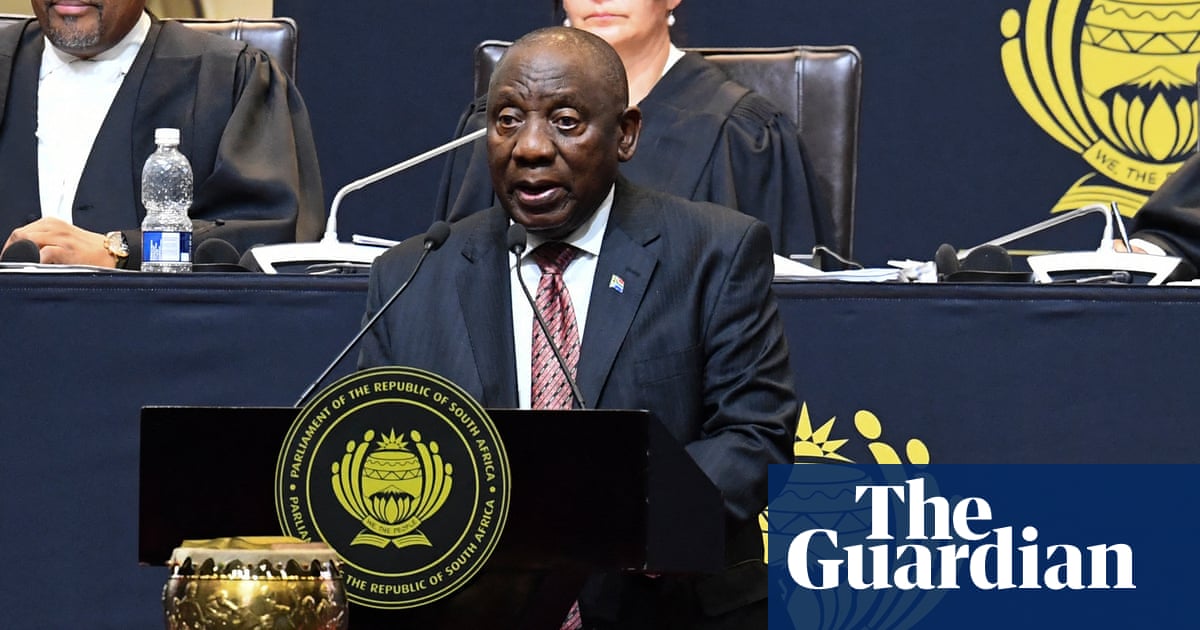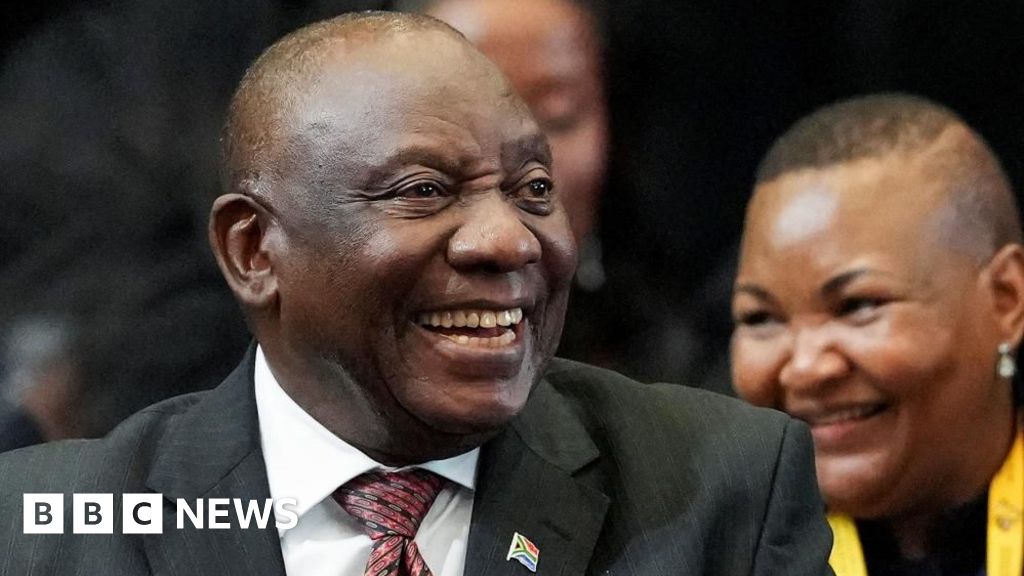South African President Cyril Ramaphosa has secured a second term in office following a coalition agreement between his African National Congress (ANC) and the Democratic Alliance (DA). This deal was reached just hours before the parliamentary vote.

Also Read: US Supreme Court Upholds Access to Abortion Pill Mifepristone
Cyril Ramaphosa was re-elected as South Africa’s president in a parliamentary vote, receiving 283 votes against his rival, Julius Malema of the Economic Freedom Fighters (EFF), who gained 44 votes.
This re-election was made possible through a last-minute coalition agreement between the ANC and the DA, two parties with historically divergent political views.
The coalition agreement was forged after the ANC failed to secure a parliamentary majority in the elections held on May 29, 2024. This is the first time since 1994 that the ANC did not dominate the national elections.
The ANC’s vote share plummeted from 57.5% in 2019 to 40.2%, largely due to the rise of breakaway parties and dissatisfaction with the party’s handling of economic and social issues.
The DA, which secured nearly 22% of the vote agreed to support Cyril Ramaphosa’s candidacy and entered into a power-sharing arrangement with the ANC.
The coalition agreement entails a “statement of intent” which includes commitments to a merit-based, nonpartisan and professional civil service.
This is a shift from the ANC’s previous practice of “cadre deployment” where party supporters were appointed to public sector positions.
The DA will occupy the position of deputy speaker of parliament, while the ANC retains the speakership. This is the first instance of formal power-sharing between the two major parties in South Africa.
Two smaller parties, the Inkatha Freedom Party (IFP) and the Patriotic Alliance (PA) have also joined the coalition, stabilizing the government.
The IFP is a Zulu nationalist party, and the PA advocates for stringent immigration policies and the reintroduction of the death penalty.
The coalition between the ANC and DA has been welcomed by large businesses and international investors. Cyril Ramaphosa’s centrist approach is expected to facilitate pro-business policies including the privatization of energy generation which has already led to a reduction in power cuts.
Some factions within the ANC and leftist parties such as the EFF have criticized the coalition with the DA. They argue that the DA, which is perceived to favor the interests of South Africa’s white minority, does not align with the ANC’s historical commitment to social equity and redressing past injustices.
Also Read: Pope Francis Repeats Homophobic Slur in Closed Door Meeting
The newly formed uMkhonto weSizwe (MK) party led by former President Jacob Zuma and the EFF have declined to join the coalition.
The MK party, which received 14.6% of the vote has positioned itself in opposition to Cyril Ramaphosa and boycotted the parliamentary session citing concerns over election integrity.
This coalition emerged after the ANC, for the first time since the end of apartheid, failed to secure a parliamentary majority in the May elections obtaining only 40% of the vote.
The coalition includes the ANC, the center-right Democratic Alliance (DA) and smaller parties. The DA, traditionally a rival of the ANC gained 22% of the vote in the elections.
The coalition has led to the establishment of a government of national unity. This is the first time since South Africa’s first democratic elections in 1994 that such a coalition has been formed.
The coalition deal was finalized after weeks of intense negotiations and speculation about alliances. The National Assembly’s session extended late into the night to finalize the agreement and votes on power distribution.
ANC Secretary-General Fikile Mbalula described the coalition as a “remarkable step” in South African politics. DA leader John Steenhuisen praised the coalition as an opportunity to unite and serve the country better.
Julius Malema of the Economic Freedom Fighters (EFF) criticized the coalition as a consolidation of white economic power.
President Cyril Ramaphosa will soon announce his new cabinet, which will include members from the DA and other coalition partners.
The agreement ensures a balanced representation of the coalition parties in key governmental roles. The ANC’s Thoko Didiza was appointed as the speaker of the National Assembly, while the DA’s Annelie Lotriet was appointed deputy speaker.
Also Read: Nancy Mace Wins Republican Primary in South Carolina






















